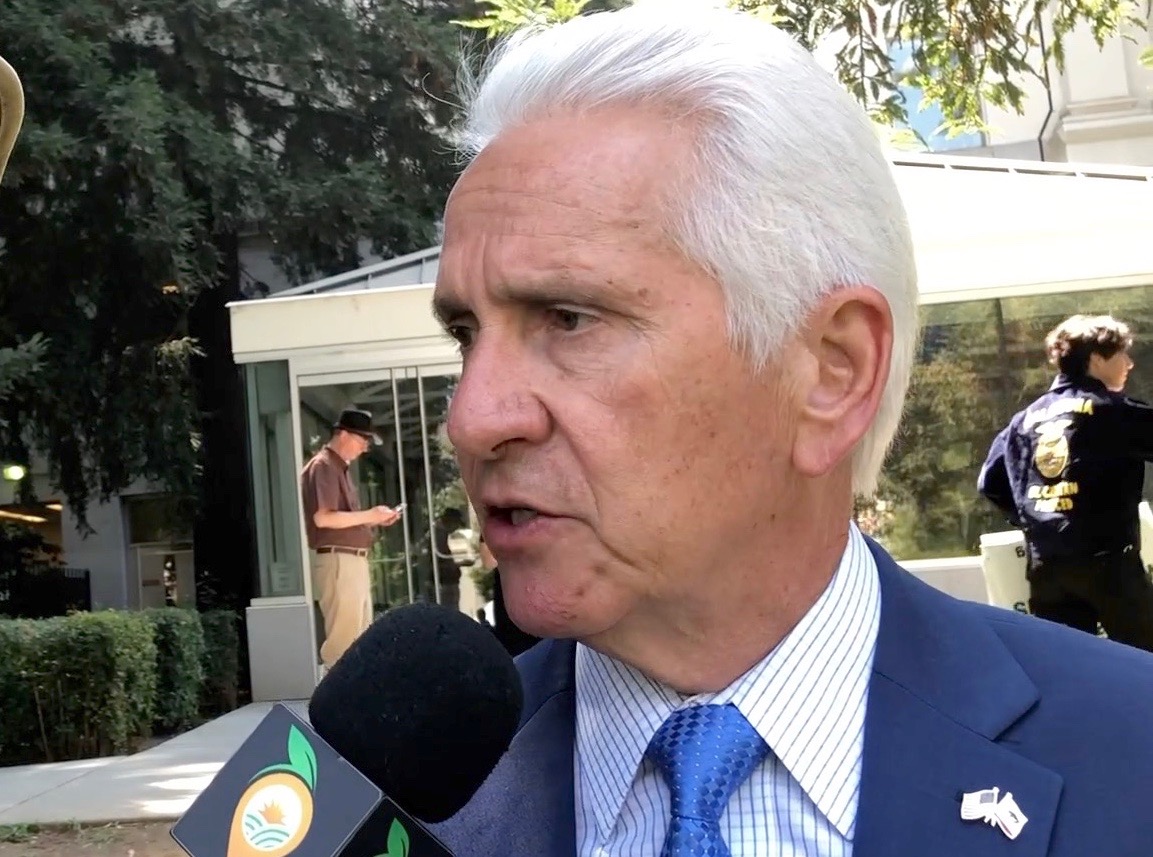State Water Resources Control Board Grab for Salmon Will Impact Federal Water
Feds and State Usually Do Not Work Well Together
By Jessica Theisman, Associate Editor
California Ag Today continues our report on the recent water rally in Sacramento at the capital building. Farmers and stakeholders attended to protest the California State Water Resources Control Board Proposed Water Grab 40 percent of the water from the Stanislaus, Tuolumne, and Merced rivers redirected to increase flows for salmon.
U.S. representative for the 16th district Jim Costa explained how federal and state water projects would be drastically impeded.
“There are distinctions between state and federal laws as relates to water. However, there are federal water projects. In this case, New Melones Dam, a Federal Central Valley Water Project site, will be severely impacted, which could be a problem for the Water Board’s plan,” Costa said. “With all of the challenges in water, none in the last 20 years have worked together between the Central Valley Water Project and the State Water Project.”
Adam Gray, 21st district assemblymen representing Merced and Stanislaus counties, explained the fight with the water resources board over the years.
“For the six years I’ve been in the assembly, we have been fighting this fight with the state water board, and despite repeated concerns that we have raised, testimony that I provided and members of my community have provided, the state continues to ignore the concerns and the farmers are not happy,” Gray said. “We are going to raise our voices as loud as they need to be and talk to whoever we need to talk to to get a fair deal on this.”
“The irrigation districts have science-based plans that involve habitat restoration, water, rebuilding a river, and dealing with non-native predators,” he said. “It is not going to be easy, and it is going to take sacrifice to make a fair deal. All they want to do is take, take, take, and it is all water with no consideration for those other things.”













